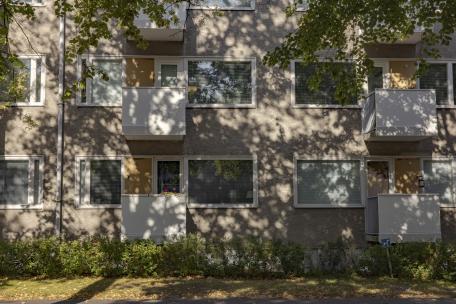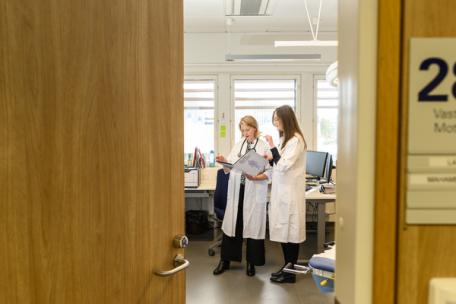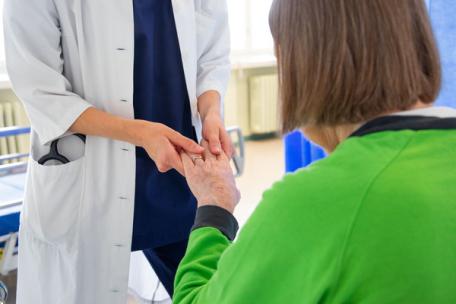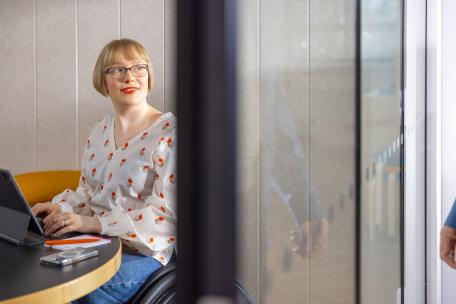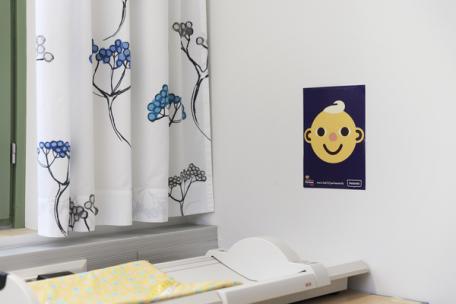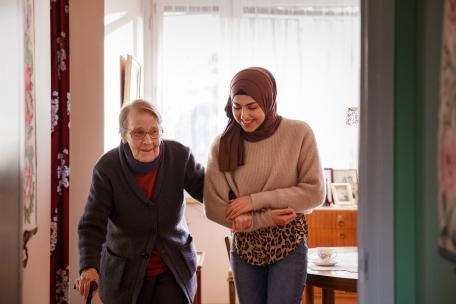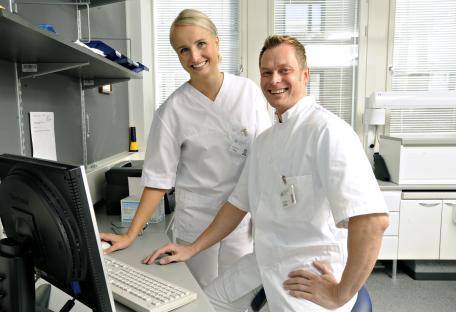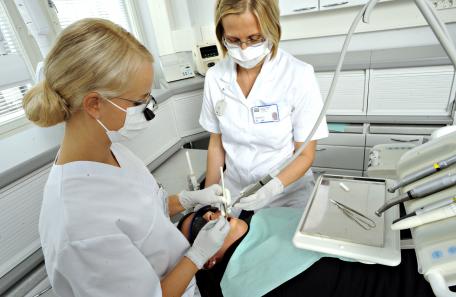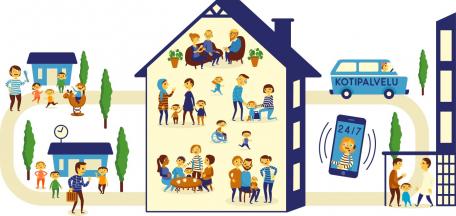Health
Adaptation and preparedness for extreme weather events
Helsinki’s operational preparedness is at a good level, but adaptation and preparedness require changes in land use planning and construction and decisions on the level of preparedness.
Read more about adaptation and preparedness for extreme weather events ›
Swedish-language health and social services for families with children
In most of the services assessed, Swedish-speaking client families are provided with the same or, in some services, even better service than Finnish-speaking ones. The City purchases Swedish-language services in certain individual child welfare services where it does not have any Swedish-speaking staff.
Read more about Swedish-language health and social services for families with children ›
Reducing homelessness
Helsinki is a pioneer in reducing homelessness. Housing counselling helps to avoid evictions, which have a high financial and human cost. There is still room for improvement in the safety of emergency housing services.
Read more about reducing homelessness ›
Functioning of the service voucher system in primary health care
The use of the service voucher has not significantly contributed to the functioning of primary health care and smooth access to treatment at health stations, as it is only suitable for a small proportion of health station clients, and the availability of the voucher is limited. The service voucher has, however, improved access to treatment at times in certain areas and for individual clients.
Read more about the functioning of the service voucher system in primary health care ›
Access for elderly people from home care to 24-hour care
The access for elderly people in home care to long-term 24-hour care has improved and waiting times have been reduced. The application process may take a long time and client feedback is not collected on its functioning.
Read more about the access of older people in home care to 24-hour care ›
The Social Services, Health Care and Rescue Services Division’s preparedness for incidents and emergencies
The Social Services, Health Care, and Rescue Services Division’s preparations for incidents and emergencies are mainly appropriate, but based on the findings, development work should continue in the future.
Read more about the Social Services, Health Care and Rescue Services Division’s preparedness for incidents and emergencies ›
Preventing drug-related deaths in substance abuse services
The city’s substance abuse services have facilitated access to treatment for people with drug dependencies through many reforms that have improved access to opioid substitution and detoxification treatment. The impact of the reforms on access to other substance abuse services could not be assessed because the reforms have only been in place for a very brief period and comparable statistical data were not available. Services for people suffering from drug dependence can also reduce the harm caused by drug use and improve the amenity and safety of the surrounding area, but facilities are lacking.
Read more about the prevention of drug-related deaths in substance abuse services ›
City advocacy from an economic perspective
The city’s national advocacy has developed with the mayor model over the last two strategic periods.
Read more about the city’s advocacy ›
The effectiveness of recommendations
Action has been taken on 94% of the recommendations from the 2021 assessment report.
Read more about the effectiveness of the recommendations of the 2021 assessment ›
Maternity and child health services to support families with children
Maternity and child health services aim to meet the individual needs of families. However, families do not always receive specialised support quickly enough, and there is room for improvement in the continuity of care.
Read more about maternity and child health services ›
The effectiveness of recommendations
Action has been taken on 90% of the recommendations from the 2020 assessment report.
Read more about the effectiveness of the 2020 assessment report’s recommendations ›
Promoting the well-being of upper secondary school students
The Education Division has taken many steps to improve student well-being and increase their sense of community. However, the services of student welfare psychologists are not easily accessible, and there is a waiting list for further treatment.
Read more about promoting the well-being of upper secondary school students ›
Access to early-stage mental health services for adults
The city has worked to improve adults’ access to early-stage mental health services, e.g. by training staff and opening more Mieppi low-threshold mental health units. The impact of the new tools introduced through training has yet to translate into faster access to care for clients.
Read more about access to early-stage mental health services for adults ›
Effectiveness of recommendations
The recommendations the Audit Committee issued in 2019 usually led to measures.
Read more about the effectiveness of the recommendations of the 2019 assessment report. ›
Achievement of binding objectives
51 per cent of the binding operation objectives were achieved. The prolongation of the COVID-19 pandemic has impacted the achievement of the objectives of the Education Division and the Social Services and Health Care Division in particular.
Read more about the achievement of the 2021 binding objectives ›
Home care for elderly citizens
Efforts have been made to develop home care in the last few years, but most of the objectives have not been achieved. Home care’s most prominent issue is the shortage of personnel. Linguistic equality is not realised due to the lack of Swedish-speaking nursing personnel.
Read more about the adequacy of home care ›
Mental health rehabilitees’ path from hospital care to housing
The city has strived to promote mental health rehabilitees’ access to housing services by turning the Aurora Hospital’s wards of rehabilitative psychiatry into housing units and by increasing the service selection of housing services in the competitive tendering of purchased services. However, the number of people on the waiting list for housing services has not decreased.
Read more about the housing path of mental health rehabilitees ›
Elderly patients in emergency services
Home care and service housing have introduced a guidebook for emergency situations and the mobile nurse service, but they are not utilised to their full potential. Closer cooperation should be established when discharging patients from hospital.
Read more about emergency services for elderly citizens ›
Access to non-urgent care at health stations
Access to non-urgent care is provided at health stations mainly within the time limits prescribed by law, but not in accordance with Helsinki’s own objectives or in an equal manner.
Read more about access to non-urgent care ›
Electronic health care services
The electronic health care services are high quality, but not all residents of the municipality are able to use them. Because of this, the availability of traditional service channels must also be ensured in the future.
Read more about Electronic health care services
›
Availability and productivity of oral health care services
The oral health care services of the City of Helsinki are high quality, but access to care has been difficult, particularly due to problems in making contact and the lack of non-urgent appointments.
Read more about Availability and productivity of oral health care services
›
Cooperation and multi-professionality at family centres
The family centre model has increased cooperation between different professionals according to the objectives. Family centre work is just beginning in several areas of Helsinki, and there are still needs for development.
Read more about Cooperation and multi-professionality at family centres
›



